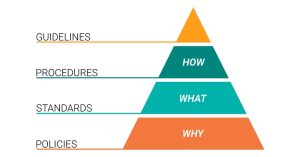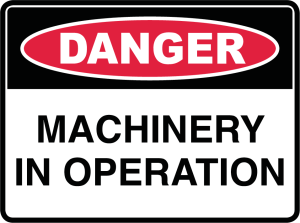With harvest quickly approaching, casual workers and contractors will begin working/operating in your business over the coming months. Its important to be upfront about your expectations in the workplace from the very beginning of their employment.
Effective Induction
| Employers have a legal obligation to provide a safe work environment for everyone. Induction is an important tool in providing employees with information about the risks and hazards they will be exposed to on farm; what your key farm policies are and why they are important for safety. Undertaking an effective induction process will be appreciated by employees/contractors, as they will feel you prioritise their safety. |  |
ORM is currently delivering the Safer Farms Families Futures (S3F) program with funding provided by WorkSafe. S3F aims to accelerate the adoption of improved work health safety on broadacre cropping farms. One of our first activities for participants provided training and resources to facilitate the induction process. One of the key take outs that participants reflected on was, how important induction is for informing farm safety policies and processes, creating a positive work culture, which in turn will make you an employer of choice.
Reasonable Approach
When recruiting and inducting new employees the below steps outline a reasonable approach:
- If you don’t have one, create a position description – this will ensure you hire the right person and set clear job expectations with roles and responsibilities outlined.
- When you have a successful application send them a letter of offer to sign and return when they commence working for you.
- On their first day provide them with:
- Employment contract (2 copies, sign both and you each keep a copy).
- Fair Work Statement and if casual, Fair Work Casual Employment Information Statement.
- Timesheet recording method.
- They will need to provide you with the following:
- Contact information (name, phone, address, email)
- Bank, superannuation and tax file number details
- Emergency contact information – save their emergency contact to your phone
- Pre-existing injuries
- Evidence of any relevant licenses (e.g. drivers licence, truck licence).
Expectations & Policies
- To set your expectations with the new employee, provide and discuss your key policies:
- Golden Rules (addresses farm-related critical risks to the employee)
- Code of Conduct
- Health and Safety
- Mobile phone usage while at work
- Drug and Alcohol (including your policy around smoking at work)
- Working remotely or alone
- Rules for children on farm
- Clean and tidy workplace
- Animal welfare
- Work vehicle usage agreement
- Any other relevant policies to your business.
The above can be done in an office setting over a few hours.
 |
Once you have set out the key guidelines, take them on a tour of the workplace to familiarise them with the farm, introduce them to other employees and provide them with any required PPE gear and a place to store it. |
Provide them with a property map, that identifies paddock names/locations and highlights any hazards, such as powerlines, dams. Also provide them with a list of emergency contacts i.e. managers number, local hospital/police/fire numbers. A useful app for farm employees is called Emergency Plus. It was developed by Australian emergency services and uses GPS functionality to help emergency services locate you in an emergency.
Machinery Operation
|
Depending on the work they will be doing, you’ll need to show them how to safely operate machinery and ensure to provide supervision as part of the training process, e.g. headers, augers, balers etc. Remembering to document this with the employee acknowledging they understand and can competently operate the machine in a safe manner. |
 |
A core aspect of meeting your WHS obligations is that:
- Machinery is safe to operate and
- The operator was adequately trained in the safe operation of each piece of equipment.
Start with the basics and continue to build on your systems and processes for inducting people into your farm. There are a lot of resources available online that can be used to get started.
There are multiple resources online for the above policies including these websites:
Ag Health Aus https://aghealth.sydney.edu.au/resources/resources-for-farmers/
People in Dairy https://thepeopleindairy.org.au/eski/
People in Ag https://www.peopleinag.com.au/
These resources can be edited to personalise to your business requirements, and they should always reflect the work practices and behaviours that you expect employees to comply with.
Rebecca Sexton, Business Consultant
For any further assistance for inducting staff – phone us on 03 5441 6176 or email us admin@orm.com.au